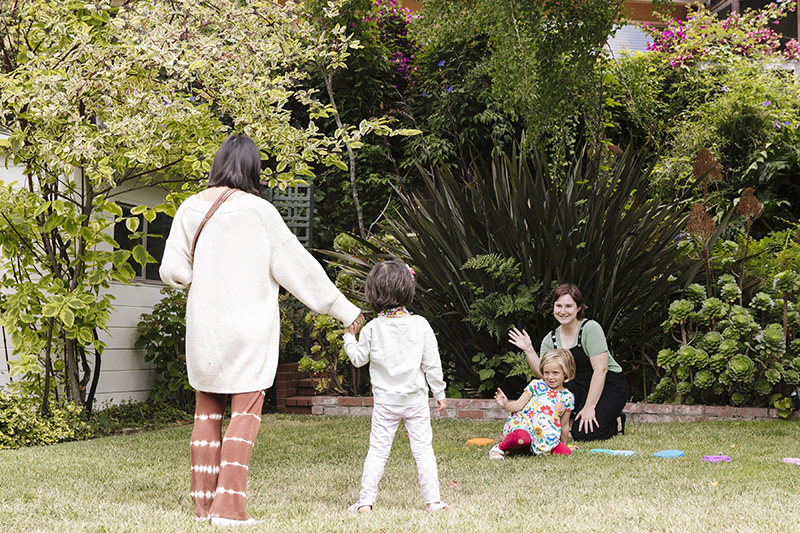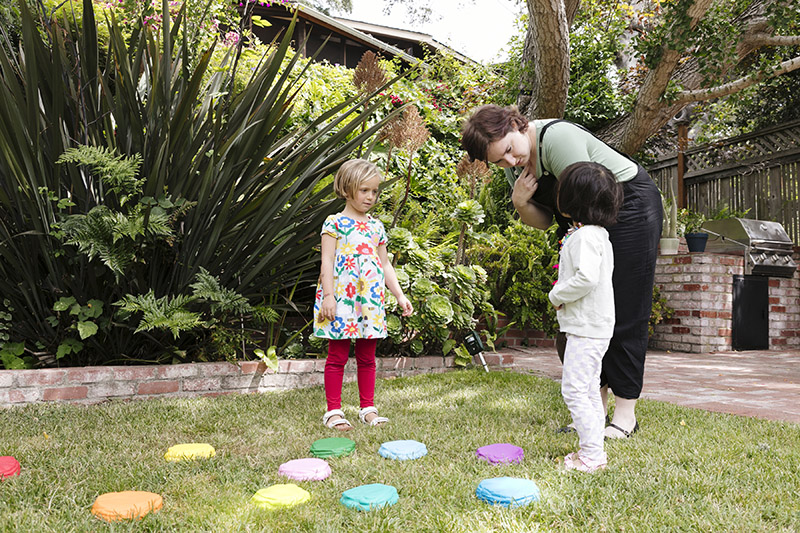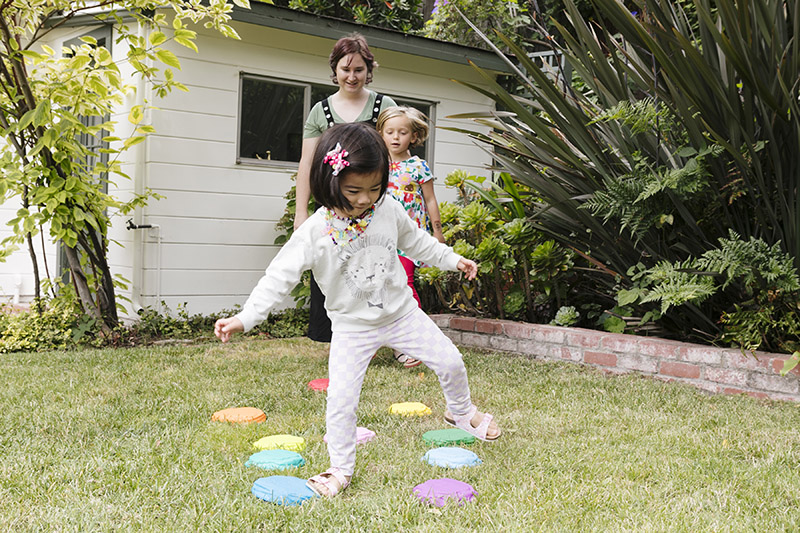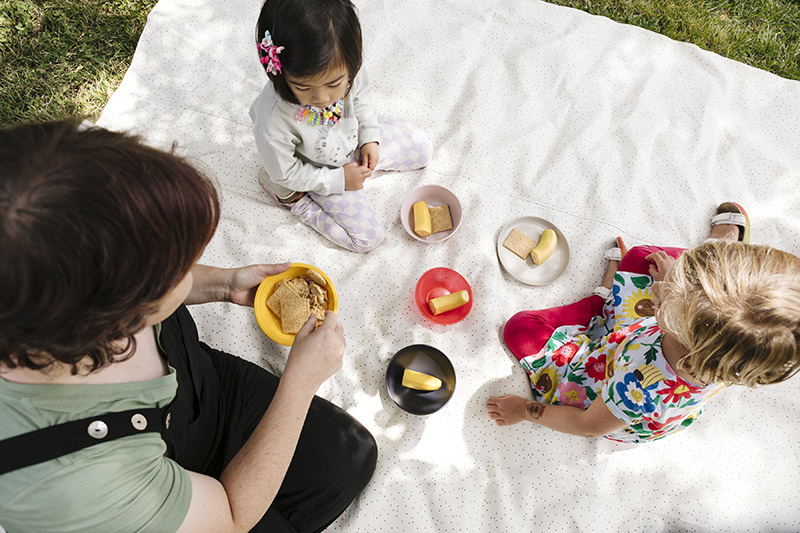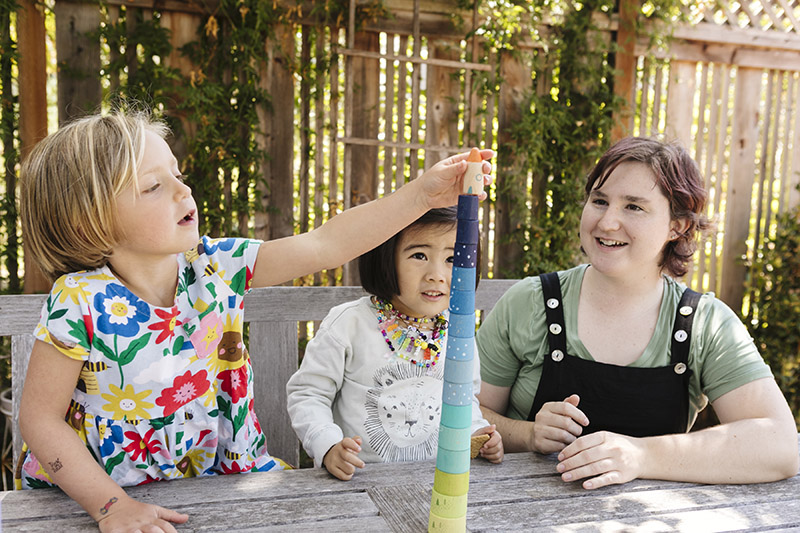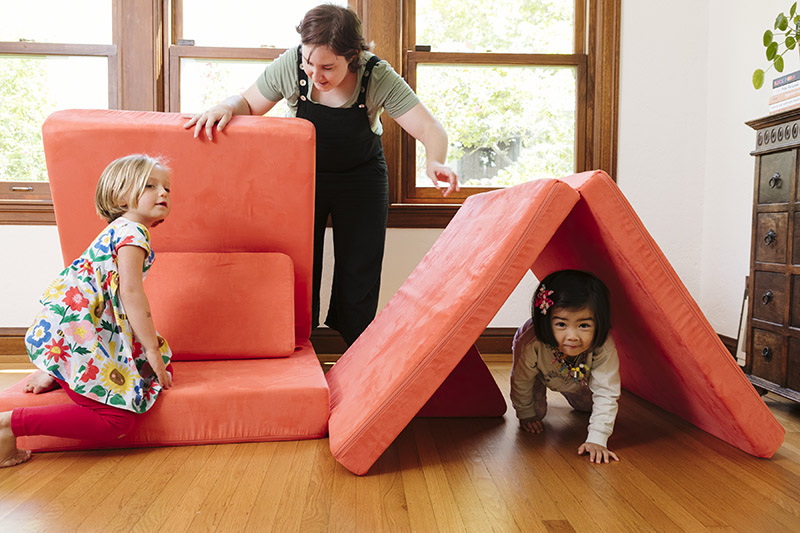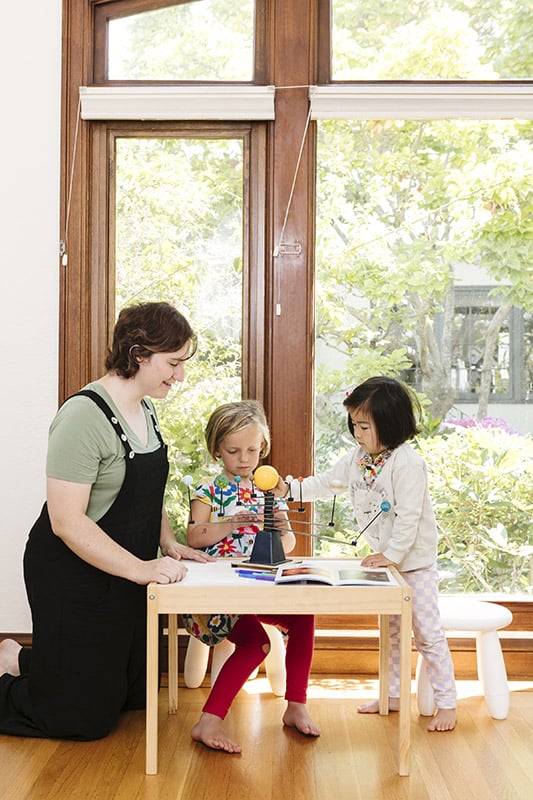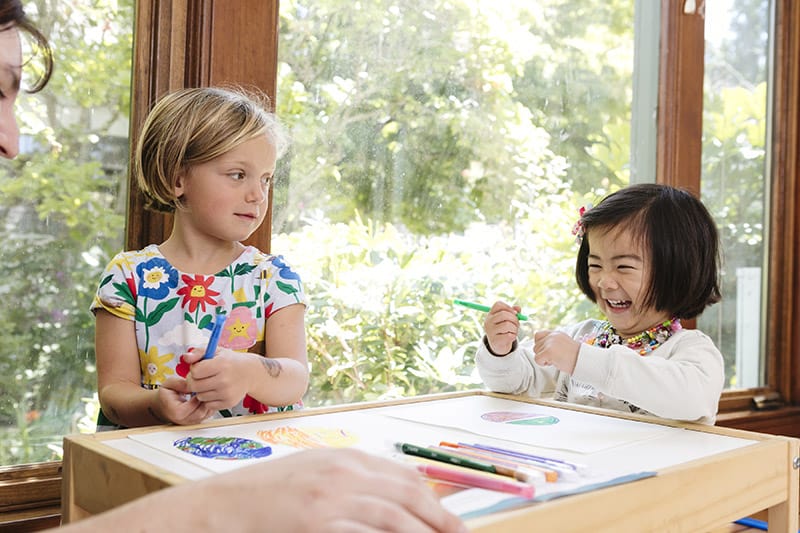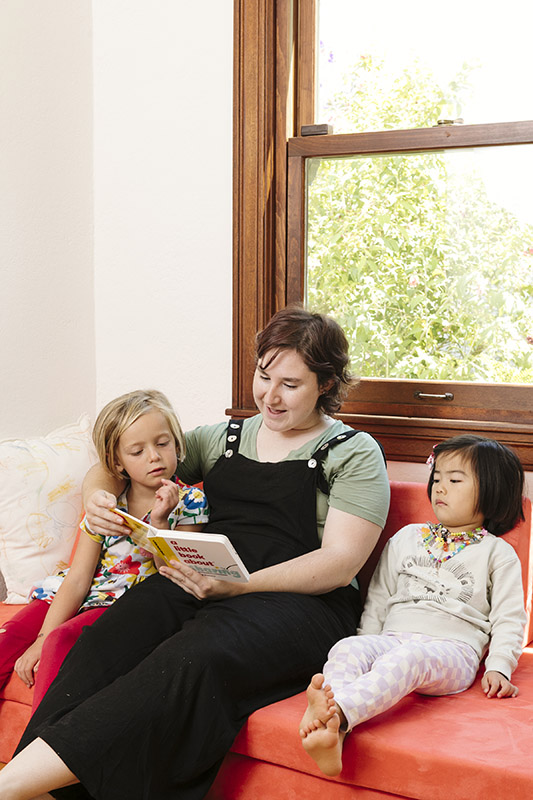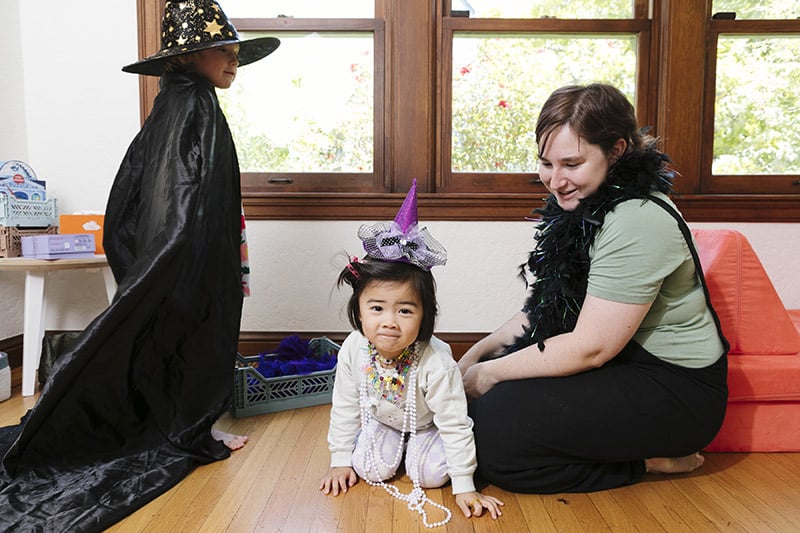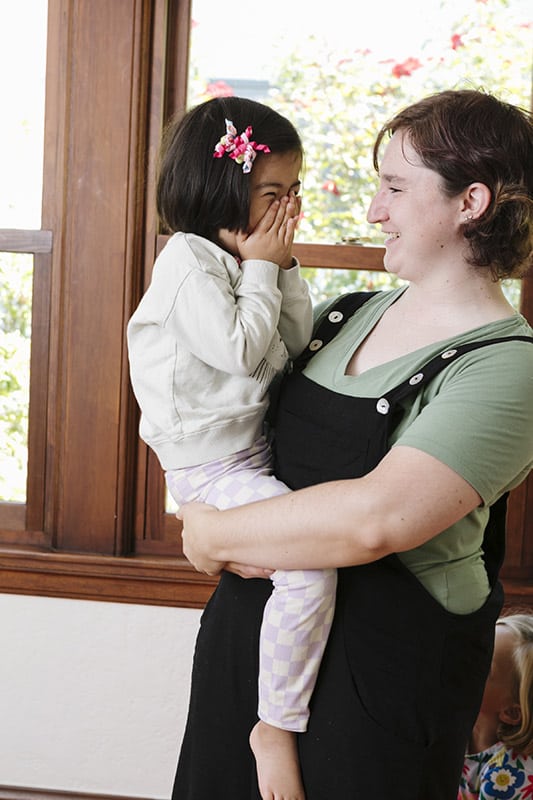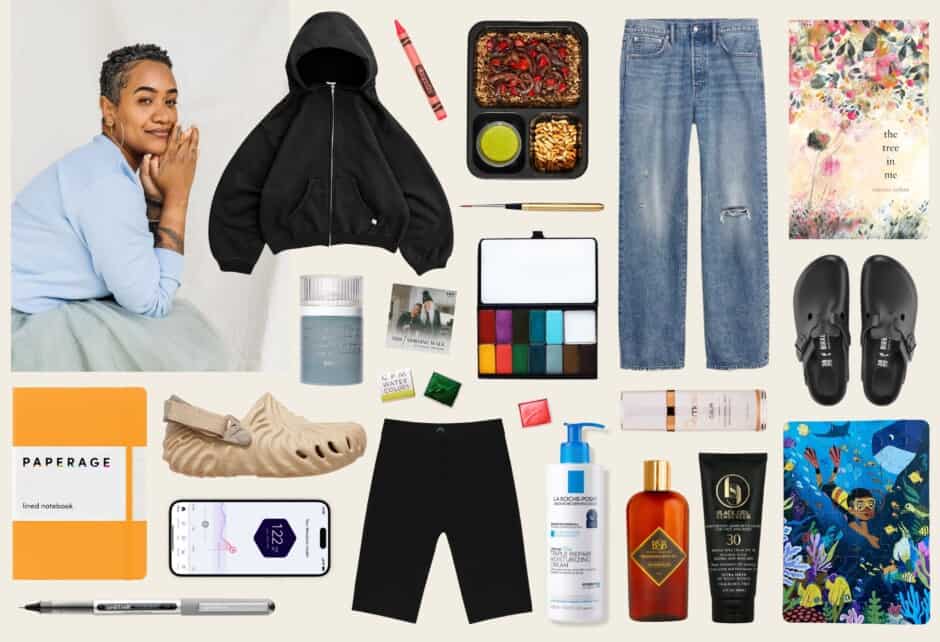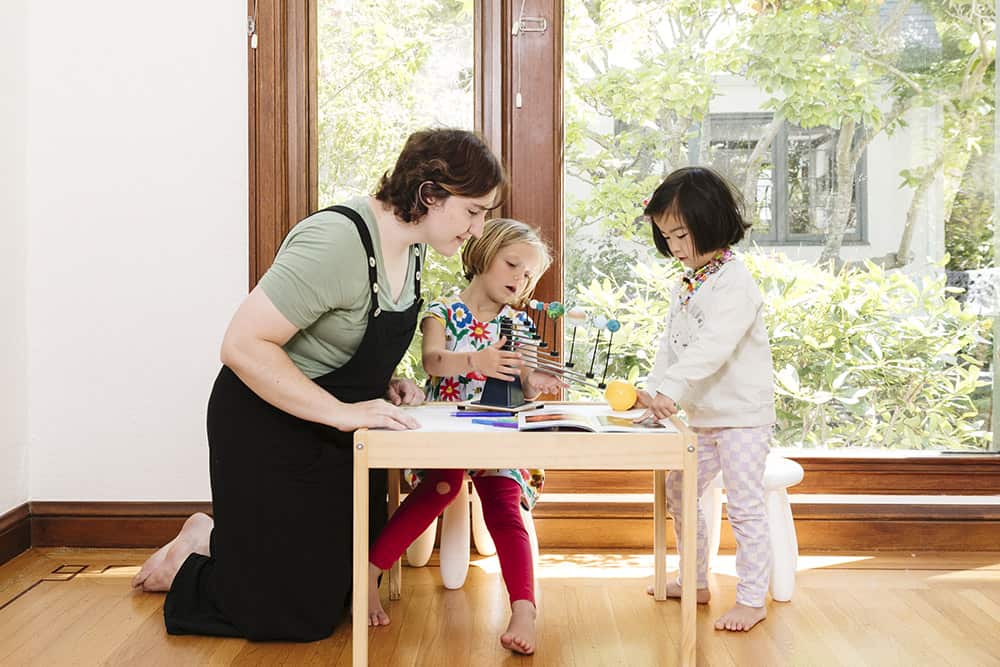
How To Prepare Your Kid (And Yourself) For Daycare Or A Nanny Share
Written by Katie Hintz-Zambrano
Photography by Photographed by Kara Brodgesell
With fall around the corner, new “back-to-school” routines await for families around the country—including the exciting start of daycare and nanny shares for many babies, toddlers, and pre-K aged kiddos. If you and your young child needs a little guidance when it comes to making the big transition (especially in this antisocial pandemic-era), we’ve got you! Below, we’ve culled the best tips on how to prepare for daycare, pre-K, and other group care settings.
As experts in early childhood education, our partner, Vivvi, knows all about embracing big change with little kids. Serving kids 0 to 12 year-old, the dad-founded childcare brand is known for taking the headache out of finding—and retaining—an incredible in-home caregiver (a.k.a. “educator”), either for solo care or a nanny share.
Read more about Vivvi’s unique service and learning approach as you flip through our must-read tips on making the transition to group care for your kiddo.
This article is brought to you by Mother + Vivvi.
-
Before your kid ever takes a step into their new nanny share or daycare set-up, you'll want to prepare them a few weeks beforehand by talking about the upcoming transition in a way they can understand.
Position it as an exciting new chapter in their "big kid" lives, and explain all of the fun things that they are about to experience.
One easy way to do this is by buying or checking out a few "back to school" themed books—which help with the transition to Kindergarten, as well.
Some of our favorites are Bubble Guppies Time For School, Peppa Pig And The Busy Day At School, Elmo Goes To School, Curious George’s First Day Of School, Daniel Tiger Goes To School, Clifford’s First Day Of School, The Berenstain Bears Go To School, The Night Before Preschool, Pete The Cat: Rocking In My School, and the like.
-
Confidence is key when it comes to the first day (and first week) drop-off routine. Be sure to brace for this big transition—including any tears that might come with it.
Brigette Maas, a Registered Play Therapist, says, "It’s important to say goodbye (don’t sneak out of the room) and actually leave. Don’t ask 'Are you okay if mom leaves now?' It will not be ok with them. Instead, walk away confidently even if your child is crying—don’t linger, come back, or keep turning around, as that will make them feel like they do actually have something to be scared of, as they’ll sense a lack of confidence. It’ll also reinforce that crying gets you to come back."
"Also, keep your promises," she says. "If you say you will be back right after recess/snack, be there. Remember that separation anxiety is a natural part of development. How parents respond to it is vital in order for kids to make healthy transitions and develop trust with parents and teachers."
She suggests creating a drop-off ritual to make things go smoothly. "Think of a special send-off between you and your child, like a special handshake, a kiss blown in their hand (especially great if you have read The Kissing Hand), or a short finger play. Think about letting your child take a small transitional object to school."
-
If you haven't found your perfect child care setting yet, consider Vivvi. The company offers high-quality in-home childcare services for ages 0 to 12-years-old that can be shared with another family for a more affordable option.
Vivvi currently offers full-day and half-day care, flexible hours, and anywhere from 20+ to 40+ hours a week—working with the nanny share families' needs to provide an optimal experience for all.
From recruiting your in-home educator, to training, payroll, background and vaccine checks, insurance, and benefits, Vivvi can handle it all! Or, if you prefer to take care of the details, Vivvi offers a caregiver placement-only option as well.
-
When prepping your child for their daycare or nanny share experience, get them jazzed by picking out favorite clothing for their big day, a cute backpack, and packing a special lunch and snacks.
Some childcare set-ups will include opportunities to bring snacks to share with the rest of the kids in attendance, which is a great way for your child to learn the power of giving (and receiving!).
In a Vivvi in-home classroom, mealtime becomes an interactive learning experience with lessons woven in. Plus: educators can prepare all meals and snacks for children if that's desired by both families.
-
Whatever group care setting you choose, be sure to ask questions about their approach to teaching your child.
With an expertise and passion in early childhood care, Vivvi's team of in-home educators design an inquiry-based curriculum that aligns interests of 0-5-year-olds with age-appropriate development, using a child's natural sense of curiosity as a powerful catalyst for learning.
Teachers encourage children to dive deeper into interests that they care about—key to being a lifelong learner!
Vivvi puts kids' observations into action through unique curriculum webs that teachers build monthly based on children’s questions. With a share care set-up, both children receive this impressive individualized attention, even if they're at different ages and stages.
-
Especially during the tender years of 0 to 5, play-based education is how children learn best. And in a group care setting, learning to play together is key.
Vivvi's in-home educators are trained in the power of play—and cooperation—and are centrally supported by the company's expert team, giving them access to the best resources and training for early childhood education and development, so that they can adapt their lessons to any in-home environment.
No matter the age of your child, some of the key topics explored at Vivvi include: Social & Emotional Learning, Self-Care, Literacy, Expressive Language, Receptive Language, Mathematical Learning, Scientific Inquiry, and Fine & Gross Motor Skills.
-
Be sure to ask your daycare or nanny share provider about their policy on potty training.
Does your child need to be fully diaper-free before joining the group care setting? Will childcare providers help transition your little one to the "big kid" toilet? What happens when accidents occur?
For families using Vivvi, diaper changes are provided for babies and toddlers, as well as potty training help for young kids learning to be more independent.
-
If your child still takes a nap, find out what naptime will be like in a group setting.
Oftentimes, children have a hard time falling asleep in new and exciting surroundings, and around other kids. For these children, having "downtime" vs. "naptime" is often the key.
Also, prepare at home for the transition to a nap mat by snuggling up in the mat at home and making it feel like an exciting and cozy place to be.
Be ready to adjust your bedtime schedule and expectations due to your new childcare set-up.
-
One of the biggest emphases of your child's group care experience will be making friends and being a good friend to others.
If your child hasn't been around many similarly aged children, try reading age-appropriate books about making friends that offer advice on introducing oneself to a new friend, sharing, playing together, saying sorry, and more. Try role-playing common friendship experiences with your child to prepare them for the real thing.
This is also a great time to prioritize identifying and learning about different feelings and how best to cope with each emotion that is likely to come up for your child in a time of change. Try talking about your own feelings around the transition, as well, so your child knows it's a big day for you, too.
-
The foundations of STEAM (science, technology, engineering, art, math) can be explored with even the youngest learners. Be sure to ask your childcare provider if and how they incorporate the topics you care about most.
With a belief in enriching care from day 1, the Vivvi program helps children acquire knowledge through active exploration, with in-home educators facilitating each child's growth by introducing structure as well as encouraging independent curiosity throughout the day.
-
The power of reading and story-telling—especially for young children—cannot be overestimated.
Your childcare provider will certainly have favorites to read aloud, but don't be shy about asking what books are being read in the classroom and suggesting new titles or topics when needed.
Stories about sharing, making friends, feelings, and other early education topics are key for the pre-elementary crowd.
An emphasis on stories featuring a diverse range of characters should also be a daily practice.
The A Little Book About... series (pictured) covers a dozen big-picture topics (from Sharing and Bravery to Curiosity and Family) in a way kids 0-4 can understand.
-
If your kid sparks a friendship in their group share setting, build upon that bond outside of daycare or the nanny share, too.
Set up a playdate so that the kids can get to know each other even better, and the parents can start to build their all-important village, too.
-
Transitioning your little one to daycare or a nanny share is a big milestone for parents, too.
Be sure to take extra care as you turn to this next chapter in your and your child's life.
If you're able to carve out solo time for a stroll, massage, coffee with a friend, or something else that feels good, go for it!
Share this story

